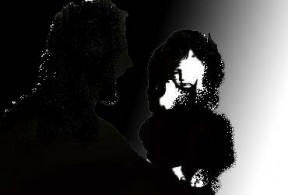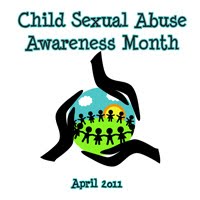 Yesterday’s newspapers were ablaze with the horrendous story of the five year-old child in Ghaziabad who died as a result of sexual assault while the parents kept the incident under wraps as the perpetrator was a family member. According to statistics released by Tulir Centre for Prevention and Healing of Child Sexual Abuse (CSA), 40 per cent girls and 25 per cent boys below 16 in India are victims of such predators. The Bill against CSA, currently in Parliament, provides for stringent punitive action against perpetrators of CSA as well as for the protection of the identities of the victims and their families. However, the fact remains that CSA is one of the most terrible, yet least acknowledged horrors of our society.
Yesterday’s newspapers were ablaze with the horrendous story of the five year-old child in Ghaziabad who died as a result of sexual assault while the parents kept the incident under wraps as the perpetrator was a family member. According to statistics released by Tulir Centre for Prevention and Healing of Child Sexual Abuse (CSA), 40 per cent girls and 25 per cent boys below 16 in India are victims of such predators. The Bill against CSA, currently in Parliament, provides for stringent punitive action against perpetrators of CSA as well as for the protection of the identities of the victims and their families. However, the fact remains that CSA is one of the most terrible, yet least acknowledged horrors of our society.
Paedophilia or sexual abuse of children—a parent’s worst nightmare— is hardly something unknown. The mental disorder that drives adults or almost-adults to sexual abuse of pre-pubescent children has existed throughout recorded history of humankind. However, even more horrifying than the vile acts of paedophiles, is the fact that in an unbelievably large number of cases of child sexual abuse (CSA), the victims’ family members, whose responsibility it supposedly is to safeguard them, either choose to look the other way, as though wishing away the unpalatable truth, or else, sweep it under the carpet out of considerations of ‘family’ or ‘honour’. But the fact remains that children who have been victims of sexual abuse end up with serious psychological issues related to self-esteem, self-image and confidence which, if not addressed promptly, become a baggage that they carry all their lives and are liable to taint all their relationships, rendering them dysfunctional, asocial, or even anti-social.
Threat from ‘near ones’
In an alarming number of instances the perpetrators of these heinous acts are either close family members or family friends. A case that comes to mind is that of a neighbour’s extremely aggressive and rebellious young niece, who was openly contemptuous of her parents. She was later discovered to have been raped repeatedly by her uncle (father’s brother) when she was less than five. Her parents had refused to believe her, choosing to ignore the entire incident and warning her to be careful, rather than open the can of worms within the family, especially since the girl was too young for ‘visible’ consequences like an accidental pregnancy. Warped for life, the abused girl started wielding her sexuality like a tool while in her early teens, perversely going out of her way to shame her parents publicly. As she grew into an adult, it became obvious that she could neither sustain a job nor a relationship. Then at about 30 years of age she was involved in a serious road accident that crippled her for six months. Lying in bed with nothing to do, she was visited by an old neighbour who initiated her into an alternate healing therapy. That was a turning point in her life. After she was cured, she left home to work as a healing therapist and has exorcised her own demons in the process.
When protectors turn predators
There was also the case of an ex-colleague who left her home in one of India’s interior towns with her two daughters at a moment’s notice when her maid alerted her to the fact her husband was trying to sexually abuse their 12 year-old elder daughter, thinking that she had gone to the market. Landing in Delhi with nothing but an airbag of clothes for all three, some of her mother’s jewelry and the phone number of an old school friend—who, along with her husband, miraculously came through for her—she eked out a living for herself and her daughters as a journalist for years, cutting herself off from her family as well as his, because if word of this were to get around, the shame to the family would mean that no one in their caste and community would marry her daughters! This was 20 years ago. Today both her daughters are married and well settled and she has become a nun in a convent. No one in the family has any idea of all this, even to date!
Harmful helping hands
Another common source of CSA is household help. With the number of double income families on the rise, it is very common for young children to be left in the care of hired help, sometimes (though not always) under the supervision of older family members. And although there have been instances of extremely caring and loyal caregivers, there are also plenty of cases where the child has been abused, either by the caregiver, or by the boyfriend of the female caregiver who visits her in the absence of the child’s parents.
Newly-wed Bela’s sister-in-law (husband’s sister) used to leave her 15 month-old daughter with her mother (Bela’s mother-in-law) on her way to work every morning and collect her on her way back home every evening. A 14 year-old male servant used to help the arthritic mother-in-law with childcare tasks like heating the baby’s milk, fetching and carrying, etc since both Bela and the child’s mother were at work during the day. As the baby grew older and more active and unmanageable for the grandmother, she relegated more and more of her tasks to the servant, such as rocking her to sleep and pacing with her whenever she was restless. Soon she let him take her out. It was Bela who saw something amiss and alerted her mother-in-law, who chose to turn a blind eye to the matter, realizing that she would have to stretch herself beyond her physical capacity to take care of the child herself. Next Bela alerted the child’s mother, but she too chose to ignore the matter, since to take remedial action would have disrupted her well-ordered professional life. She then broached the matter with her husband. He was snubbed when he discussed it with his mother and sister, but deeply disturbed, he fired the servant immediately. The child is now sixteen, and a lovely, confident young lady, and hopefully, has no memory of theseincidents of her infancy.
Prevention and pre-emption
 The menace of CSA is a reality that cannot be denied. It is high time we face it head-on and take preventive measures, the most important one being educating our children and building enough trust and rapport with them to enable them to share their darkest secrets with their parents. Innumerable cases of CSA go undetected, even by the victims’ parents and near ones, because some atavistic instinct of shame or fear impels them to keep the secret, even though it is something that they don’t understand.
The menace of CSA is a reality that cannot be denied. It is high time we face it head-on and take preventive measures, the most important one being educating our children and building enough trust and rapport with them to enable them to share their darkest secrets with their parents. Innumerable cases of CSA go undetected, even by the victims’ parents and near ones, because some atavistic instinct of shame or fear impels them to keep the secret, even though it is something that they don’t understand.
A few years ago I noticed that my seven year-old daughter winced as I changed her underpants. Filled with foreboding, I questioned her gently. Hesitating, she said that for the past two days a ten year-old boy in her school van would push apart the legs of the six and seven year-old girls in the van and prod them with his boot. I was filled with a murderous rage as I heard my baby stammer out this atrocity, but controlled my own reactions. I asked her if this had been going on longer than the past two days. She denied it, and I believed her because it was the first time that she had shown such signs of discomfort. When I asked why she and the other little girls did not scream or complain to the driver or the teachers in the van (there were two of them!), she said they had protested and complained, but that no one had paid any attention. Deeply disturbed and upset, I pondered over the best way to handle this, fully aware that the situation called for immediate action. After a lot of thought I decided to confront the situation head-on.
Next morning I requested the teachers in the van and the driver to give me two minutes and told them the entire story. I demanded the telephone number of the offender’s parents from the van driver, preferring to take the matter to them. I then politely asked the teachers what they were about to let such things happen while they were present in the van. The teachers looked sheepish and admitted that they thought that the little girls had been screaming and complaining because one of the boys must have been bullying them, as usual. The van driver was mortified, and apologized, and although he did not then give me the numbers I asked for, he promised to personally inform the child’s parents of this incident and to discontinue his usage of the van with immediate effect. He was as good as his word. I did, however, inform the parents of the other little girls in the van about the incident so that they would be on their guard in future. And as it chances, my daughter took no harm from the incident, but has now, hopefully, been warned for life against objectionable behaviour by anyone.
CSA is a social disease that needs to be dealt with the pesticide of exposure, education and prevention. More important than anything else is the need to divest it of its aura of shame and secrecy, and bring it out in the open, to be understood and condemned by society at large, while extending understanding and help to the unfortunate victims, so that parents take proactive measures to help their children instead of turning their ‘shameful secret’ into skeletons in the cupboard.
For more information about CSA Awareness Month, visit www.csaawarenessmonth.wordpress.com






It’s agonising, frustrating, and you feel like tearing apart everything that comes your way only when you read about such things, let alone go through it…I can feel your angst…
Kudos for writing such an exhaustive article on the evil of CSA. If this evil has been existing since long, is because of want of courage to rise against it.
Unfortunately the TV with unrestricted depiction of vulgarity has added fuel to fire.
Like Anna Hazare there is need to raise a movement of social awakening and exemplary punishment to those responsible for such shameful acts.
A hard-hitting post and deservedly so. Thanks, Parul.